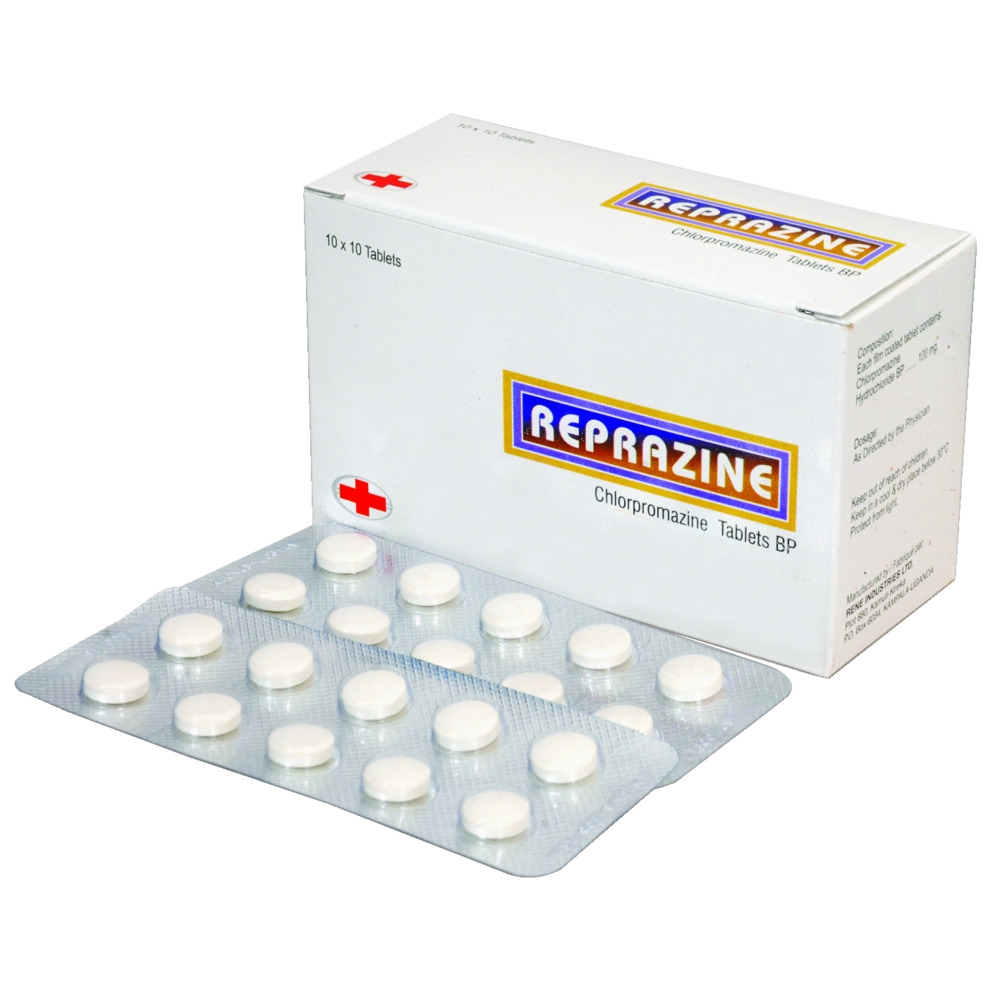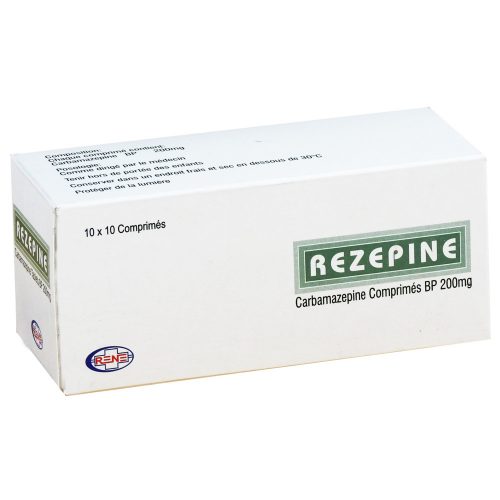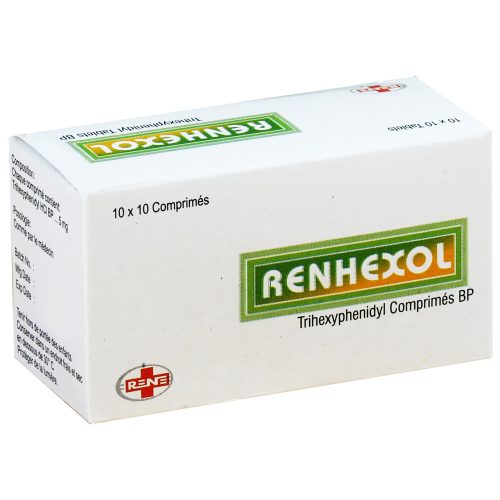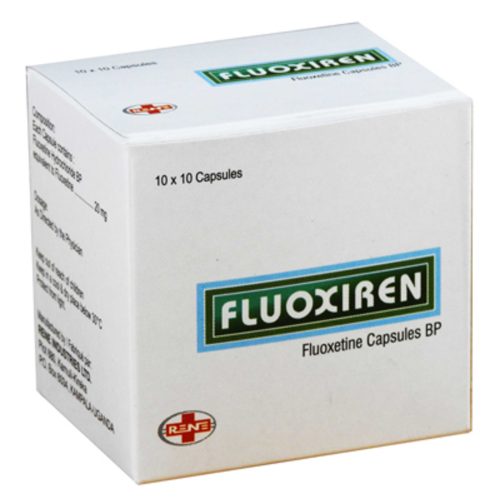REPRAZINE
Chlorpromazine is a psychiatric medication that belongs to the class of drugs called phenothiazine antipsychotics. It works by helping to restore the balance of certain natural substances in the brain.
Description
Indications
For the management of manifestations of psychotic disorders, schizophrenia, nausea and vomiting, relief of restlessness and apprehension before surgery, acute intermittent porphyria, adjunct in the treatment of tetanus, manic type of manic-depressive illness, relief of intractable hiccups.
Pharmacological class
Antipsychotic
Pharmacological properties
Antidepressant
Mechanism of action
Chlorpromazine is an antagonism of D2 receptors in the forebrain. The effect on D1 receptors is variable. Blockade of the D2 receptors induces extrapyramidal effects.
Side effects
Extrapyramidal symptoms (related to tight binding to, and receptor occupancy of, D2 receptors) – Parkinsonism including tremor, acute dystonias, e.g. torticollis, fixed upward gaze, tongue protrusion; uncontrollable restlessness with feelings of anxiety and agitation and tardive dyskinesia, anticholinergic (dry mouth, nasal stuffiness,
constipation, urinary retention, blurred vision), sedation, drowsiness and confusion, Ocular disorders, Hyperprolactinaemia, Cardiac dysrhythmia, including torsades de pointes, Seizures, particularly in alcoholics, Impaired temperature control, with hypothermia in cold
weather and hyperthermia in hot weather.
Contra indications
It is contraindicated in patients with known hypersensitivity to phenothiazines, comatose states or in the presence of large amounts of central nervous system depressants (alcohol, barbiturates, narcotics, etc.), coma due to cerebral depressants, bone marrow depression, phaeochromocytoma, epilepsy, chronic respiratory disease, hepatic impairment or Parkinson’s disease; caution is needed in the elderly, especially in hot or cold weather; pregnancy, lactation.
Drug interactions
Alcohol and other CNS depressants – enhanced sedation; hypertensive drugs and anaesthetics – enhanced hypotension; increased risk of cardiac arrhythmias with drugs that prolong the QT interval (e.g. amiodarone, sotalol); tricyclic antidepressants – increased antimuscarinic actions; metoclopramide – increased extrapyramidal effects and akathisia; antagonism of anti-Parkinsonian dopamine agonists (e.g. L-dopa) (these are in any case contraindicated in schizophrenia).





